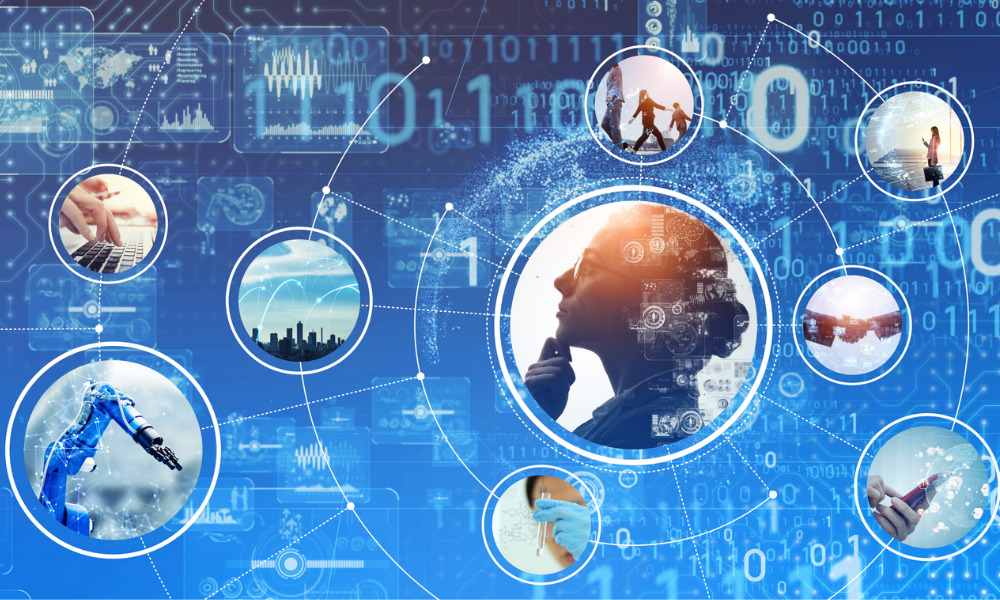
KPMG's new study highlights HR Pathfinders as the way of the future

This article was produced in collaboration with KPMG in Canada.
Mallory Hendry of HRD Canada sat down with Doron Melnick of KPMG in Canada to discuss some of the challenges and opportunities HR leaders are facing in today’s environment.
The outside forces of digital transformation — which provides the technology to automate processes and be more productive — and the impact of the COVID-19 pandemic — which fundamentally changed where we work and how we interact with each other — converged over the last year-and-a-half to form what the World Economic Forum calls “double disruption.” And for all the chaos it’s brought to organizations’ shores, it also provides new possibilities as human resource leaders pivot to chart these turbulent waters.
“Organizations have an opportunity to take a fresh look at their approach to talent, culture and the work environment,” says Doron Melnick, Partner and Lead for Transformation Delivery and People & Change, Management Consulting at KPMG Canada.
“There’s no playbook — the double disruption is forcing us all to experiment. We don’t know what the right answer is, but we know every organization must adapt. Some of it will be planned and strategic, some will be trial and error. The organizations that deal with disruption effectively will be the ones that are good at learning.”
A recent study by KPMG, The future of HR: Lessons from the Pathfinders, defines a Pathfinder as an organization that is strategically focused on how it conducts HR management, focusing on employee experience, data and analytics in HR decision support, workforce shaping, digital HR services and learning. Pathfinders navigate the current and future environments by pulling on levers — such as talent development programs, data-driven support on people matters and a purpose-driven culture — to help create a work environment where learning and adaptation are valued and a business norm.
KPMG’s research on Pathfinders showed a “digital mindset” which is a willingness by the HR teams in these organizations to understand the big picture, experiment with new ways of working, use data to measure and learn and put lessons into play. Melnick says Pathfinders have a positive attitude towards customer centricity and change.
“We believe — and these Pathfinders believe — that HR functions which have a digital mindset will help their organizations be successful for the future because they will be ready to adapt.”
Proactive HR action can be found at Salesforce, where the company is leveraging data analytics experts across the organization to continually inform and improve the experience of working there. This includes analyzing data from internal areas such as engagement surveys and interactions with HR, but also externally though employer review sites, constantly assessing data to anticipate where problems may arise and where they can proactively address or build programs. For instance, employees going on parental leave typically come back to the HR platform with the same five questions. In response, the HR team now automatically delivers that information in the weeks leading up to their leave. This proactively addresses the employee concerns before they even know they have them.
“HR professionals can at times be caught up in firefighting, and we all experienced that during the pandemic — for good reasons,” Melnick says. “But we can also take a step back and work to broaden the HR vision and skill set.”
The Pathfinders study found three themes:
Ultimately, the vision for HR rests on what the business needs, Melnick says, and that’s driven in turn by the market, the industry and employee expectations. HR leaders can ask questions about how these factors are changing and determine what that could mean for the workforce three, five and ten years into the future. The answers will suggest what HR needs to be good at to help the business attract and develop the necessary talent and deliver a differentiated employee experience.
It comes back to investing in HR’s capability to work based on evidence and provide data to support business decisions, Melnick says, or in other words bringing a philosophy of continuous improvement — the plan-do-check-adjust (PDCA) approach — to the world of HR and using it to influence things like performance development, inclusion, equity and culture — and also to create that critical learning environment that offers resiliency against ever-increasing change. HR analytics solution provider Simply Get Results found, through analysis of 900,000 HR job postings over the last five years, a marked increase in specific skills and characteristics such as design thinking, digital transformation, experimentation, resilience and risk-taking.
“Pathfinding is a way to navigate an uncertain world and build capability to survive and thrive into the future,” says Melnick. “Continuous adaption is key for survival.”
Doron Melnick advises clients undertaking complex operational change programs. He works with cross-functional teams to: articulate the case for investment; secure executive sponsorship and engage stakeholders; establish program structures and implementation plans; and exercise good practices for program governance and organizational change management. His experience spans multiple industry sectors.